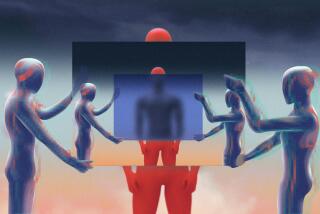Navigating the Real World
- Share via
A rotating panel of experts from the worlds of ethics, psychology and religion offer their perspective on the dilemmas that come with living in Southern California.
*
Today’s question: “Scientists for the first time ever have successfully cloned an adult mammal, creating a carbon copy lamb from a normal adult cell taken from the udder of a female sheep. If this is a forerunner to cloning humans, what are some of the implications and what moral or ethical principles should guide such an enormous decision?”
*
Rabbi Elliot N. Dorff
Medical ethicist, and rector and professor of philosophy, University of Judaism, Los Angeles.
“Our mission on this Earth is ‘to work it and to preserve it’ (Genesis 2:15). As long as we preserve nature, then, we have both the right and the duty to work with it to fulfill human needs. That might include cloning plants or animals for medical cures, or cloning tomatoes and milk cows to provide food. We may not clone ourselves, though, for we are not granted permission to live forever (Genesis 3:22). In addition to fears of creating a master race of the rich and the powerful (but not necessarily the good), to clone ourselves would be to worship ourselves rather than God, and that is idolatry of the worst sort (cf. Deuteronomy 8:11-20).”
*
Dr. Hassan Hathout
Medical doctor and author of books on biomedical ethics from an Islamic viewpoint, Los Angeles
“A principal protector of life is the transmission of alleles [corresponding units of paternal and maternal genes] that neutralizes lethal genes always harbored by the other parent by inheritance or by mutation. Genetically single parenthood lacks this vital mechanism, devastating the species. In animals it is an experiment. In humans it is a crime. The production of generations of copies of a human being of different ages or across the ages would play havoc with familial and social relations as known today, and economic areas such as inheritance. Reproduction based on male and female union will be merely an option. Cloning on the basis of distinguished features will inevitably lead to discrimination. According to Islam, not all that can be done should be done.”
*
Father Jeremiah J. McCarthy
Rector and ethicist, St. John’s Seminary, Camarillo
“The 1987 Vatican bioethics document, ‘Donum Vitae’ (The Gift of Life), offers some key moral insights. Life is a gift of the Creator and not a result of human manufacture. The document reminds us that science must protect the integrity and dignity of the human person. Knowledge is always value-laden and scientific reason must serve truly moral purposes. The philosopher Immanuel Kant observed that ‘human beings are always to be treated as ends and never as means to an end.’ The first principle of biomedical ethics suggests that human beings are never to be reduced to the status of an ‘object’ of scientific manipulation. Finally, science always has social and public policy implications.”
*
Compiled by LARRY B. STAMMER, Times religion writer





